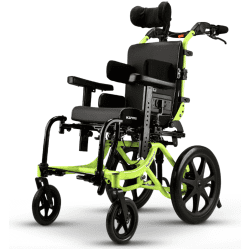Table of Contents
ToggleHigh-functioning Autism (HFA) is a type of Autism spectrum disorder that affects individuals differently than other types of Autism. It’s a condition characterized by difficulty with social interactions and communication.
Still, unlike many different forms of the disorder, those affected may have fewer severe signs and symptoms, be able to function intellectually normally, or even surpass their peers intellectually in some areas
Unfortunately, HFA can often go unrecognized for long periods if not diagnosed correctly due to its subtlety and the perception that “if you don’t look autistic, then you mustn’t be.” Let’s explore what High Functioning Autism is.
What Does High-Functioning Autism Actual Mean?
The term “high-functioning autism” refers to persons with Autism whose symptoms are less noticeable to the average observer. Level 1 Autism Spectrum Disorder is the recognized medical term.
High-Functioning Autism Vs Asperger
Individuals who met the criteria for HFA were previously misdiagnosed as having Asperger’s syndrome. With the publication of the fifth version (DSM-5) of the Diagnostic and Statistical Manual of Mental Disorders in 2013, Asperger’s was no longer included in the manual.1
Since then, experts have used a scale from 1 to 3 to indicate the extent of autism spectrum condition, with higher numbers indicating more assistance requirements.
- Level 1 needs some assistance
- Level 2 needs extensive reinforcement
- Level 3 demands very robust support.
Causes of High-Functioning Autism
Autism’s root causes remain a mystery to scientists. Some genes have been linked to an increased chance of developing Autism, but no one gene or set of genes has been identified as responsible for the disorder.
Some research suggests, however, that this syndrome may result from a complex interplay between genetics and the environment. For example, a person who has a gene variant that raises their risk of Autism could not develop the disorder until they are exposed to a certain set of environmental triggers, such as a virus or a poison.
Other biological variables that may enhance the incidence of Autism are also the subject of continuing investigation. Potential risk factors include alterations in metabolic processes in the brain, neural connections, and the immune system.
Symptoms & Complications
Some of the symptoms of high-functioning autism in male adults and children they can experience are:
Executive Planning Problems
Executive functioning refers to the abilities necessary for individuals to maintain order and structure in their daily lives. Examples are making and keeping to a timetable or working according to a timeframe.
Executive functioning issues are common among those with HFA. This may make even slight adjustments to one’s home, school, or job routine challenging to handle.
Sensory Issues
Sensory processing dysfunction is common among autistic persons. The term “sensory overload” has come to describe this condition. The symptoms of HFA include sensitivity to auditory and visual stimulation, intense flavors and odors, and physical contact.
This makes attending activities like dining, watching movies, and shopping more challenging. In addition, anyone with sensory processing issues may have trouble performing the simplest tasks, such as receiving a hug or putting on shoes.
Using techniques and sensory occupational therapy, some persons with Autism can improve their ability to cope with sensory problems. However, sensory processing disorders are not outgrown. Any autistic kid who develops SPD as a youngster will continue to suffer from SPD as an adult.
Verbal Communication Challenges
The verbal skills of a kid with HFA are often unaffected. They could have little trouble picking up random information like vocabulary, grammatical standards, and word meanings. However, some issues arise when using language for communication.
It’s possible that someone with HFA might have trouble grasping the subtleties of satire, metaphor, or idiom. “Pragmatic” describes this kind of language. Some persons with HFA also have difficulty expressing themselves when feeling anxious or agitated.
Problems Regulating Emotions
Autistic people’s feelings might be intense at times. They may seem overreactive or underactive, depending on the context. An autistic person may find it challenging to control their feelings when faced with an unexpected situation.
It might be difficult to go from one place or activity to another. In addition, a person with HFA may react dramatically to any planning modification or schedule disruption.
Anxiety and Depression
HFA is often accompanied by anxiety, sadness, and other mood disorders. The prevalence of mental disorders among those with HFA is elevated relative to the general public.
The reason why, yet, is not evident. Mood issues may be a symptom of Autism. The social stigma associated with Autism may also have a role. Mood disorders are debilitating regardless of their sources.
Discomfort in Social Situations
Individuals with HFA may have difficulty reading facial expressions and other non-verbal clues. In addition, interaction issues are common for those with HFA and might include:
- Learning how to welcome others properly
- The ability to listen while someone else is speaking
- Controlling their loudness and pitch of speech
Some persons with HFA may have trouble establishing friends, landing a job, and going on dates because of social discomfort.
Diagnosing High Functioning Autism
There is currently no reliable laboratory test for Autism. A doctor may prescribe more testing to figure out additional medical conditions. If a doctor suspects an illness in a kid, they may recommend running blood tests or ordering a brain scan to rule out trauma.
The diagnostic process for Autism involves a clinician asking questions about the patient’s health and observing them for obvious indications of the disorder. They can only be diagnosed if they fit a specific set of criteria. Even in persons with prominent behaviors, displaying just one or two of the symptoms and behaviors linked with Autism is not sufficient diagnostic criteria.
Management & Treatment
Even though Autism cannot be cured, symptoms may shift as a person ages. Some kids’ symptoms that led to a diagnosis may fade as they age. It’s possible that some people with Autism don’t recognize their condition until they’re adults.
The primary goal of providing support is to enhance the individual’s quality of life who is autistic. When children get early intervention programs, they have a better chance of achieving emotional intelligence, linguistic proficiency, and other indicators of healthy development. In addition, several states provide inexpensive or no-cost therapies for kids of all ages.
If you are a parent weighing your assistance choices, you ought to understand that the efficacy of applied behavioral analysis, one of the most used approaches, is still being debated. Moreover, many adults on the autistic spectrum see this treatment as harsh.
Anxiety and obsessive-compulsive behavior are only two symptoms of Autism that might be alleviated with medication. In addition, with the proper support, they may succeed in the classroom and their workplace.
Frequently Asked Questions
What are the signs and symptoms of high-functioning autism?
Signs and symptoms of high-functioning autism include executive planning problems, sensory issues, verbal communication challenges, problems regulating emotions, anxiety, depression, and discomfort in social situations. Individuals with high-functioning autism may struggle with maintaining a routine, experience sensory overload, have difficulty understanding social cues, exhibit intense emotional reactions, and face challenges expressing themselves effectively.
How is high-functioning autism diagnosed?
Diagnosing high-functioning autism involves a comprehensive evaluation by a healthcare professional or clinician. They will typically ask questions about the individual’s health history, observe their behavior, and assess their social interactions and communication skills.
Diagnosis is based on specific criteria outlined in diagnostic manuals, such as the DSM-5. There are no definitive laboratory tests for autism, so the diagnosis relies on a thorough assessment of the individual’s behavior and developmental patterns.
Can high-functioning autism be treated or cured?
High-functioning autism cannot be cured, but symptoms and challenges associated with the condition can be managed and improved with appropriate support and interventions.
Early intervention programs, such as applied behavioral analysis (ABA), speech therapy, occupational therapy, and social skills training, can help individuals develop essential skills and coping mechanisms. Medications may be prescribed to address specific symptoms like anxiety or obsessive-compulsive behaviors.
Bottom Line
High-functioning Autism is a subjective evaluation of a person’s abilities rather than a medical diagnosis. It’s more accurate to see Autism as a spectrum, with people on the spectrum displaying varied degrees of characteristic behavioral deviations.
To realize their greatest potential, autistic people need and ought to receive appropriate assistance and solutions regardless of how effectively they may function.





































